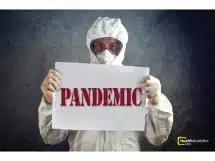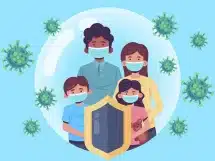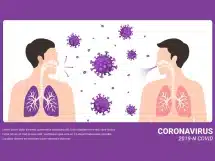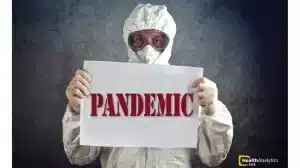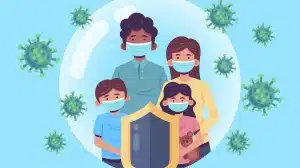While the advantage of prevention over curative intent is well-established knowledge, nothing like a pandemic to teach us what it actually means! Here are some key learnings from Sri Lanka’s remarkable success in combating COVID-19.
By Dr. Wajira Chinthaka
The pandemic is far from over, yet Sri Lanka has been doing remarkably well in terms of containing the spread of the infection. COVID-19 has taught us many lessons, leading to changes in the perspectives of clinicians, administrators as well as the public. While the advantage of prevention over curative intent is well-established knowledge, nothing like a pandemic to make us realise what it actually means!
Despite spending far less on healthcare than many of its global counterparts, Sri Lanka has strong public health and free healthcare delivery systems in place. Here are the top five lessons we have learnt so far, lessons that can be replicated, reinstituted or modified to cope with future crises:
Strong political leadership
The foremost prerequisite to any successful public health programme is strong political leadership. As the origin of the pandemic was announced, Sri Lankan political leadership embraced vigilance to counter the potential threat. Early mobilisation of military and intelligence service, creating specialised border control expert teams, and being among the first countries to arrange rescue missions and establish a multi-sectoral committee to counteract the impact – these were some of the things that the leadership did right. It was inspiring to see the political leadership respect different opinions and create a platform to work towards a common target, setting aside former differences.
Free public health and education system
Sri Lanka has identified health and education as an investment and not an expenditure. The public health system is free for all citizens in Sri Lanka, as is the education system, thereby increasing accessibility to healthcare and improving health-seeking behaviours. Undoubtedly, this has created a community with a high literacy rate that acts responsibly and a well-qualified healthcare workforce that has strong nationalistic sentiment as they are locally educated and trained. Sri Lanka has a robust community health service, which has been appreciated on global platforms for its achievements in preventive care, including 100 per cent vaccination cover, impressive health statistics, successful eradication programmes in many tropical diseases, etc.
Intensive disease surveillance
While the WHO recommended “Test, Test and Test” strategy, Sri Lanka modified it to “Trace, Trace and Test”. Sri Lanka’s approach to minimising the spread of COVID-19 began with movement restriction. Looking back, it is understandable as the priority was set to community tracing and isolation. Early and full mobilisation of the available workforce, mainly the military and community health service, was commendable. As was the commitment to technical excellence and evidence-based strategies using a highly-trained and dedicated workforce. Strategic collaboration and partnership with the military and healthcare workforce have created a cost-effective preventive programme. Island-wide quarantine centres and travel-restricted community pockets were used to increase the intensive surveillance of the targeted population.
Empowering the community
Without a strong and positive public sentiment towards a community programme, there can be little success. And encouraging attitudes cannot be developed if the public doesn’t understand the gravity of the situation and their responsibility. Even with understanding, the priorities could change if the system cannot empower them with capacity building in coping with the economic burden and disease threat. Filling the gap of knowledge using mass media and social media, rigorous community engagement and economic support has created least resistance from the public in Sri Lanka so far. The preventive task force has managed to balance the health versus the economy aspect of the pandemic to a certain level, although it is too early to comment on it now.
Multi-stakeholder coordination
A pandemic or even an epidemic is never just a health issue. Its impact is multi-sectorial and the planning, execution, monitoring and evaluation of counteractive programmes have to be done with multi-stakeholder coordination. In dealing with each of these aspects, the task force constitutes different arms while having centralised control. Even with continuous resistance from political sentiments and trade unions, the experts in the task force are guided with spirit and a single ambition backed by the political leadership.
Yes, the crisis is far from over. Yet, the lessons that we have learnt during the COVID-19 pandemic will serve us well in the years to come.
(The author is a senior registrar in critical care medicine at National Hospital – Kandy, Sri Lanka)




